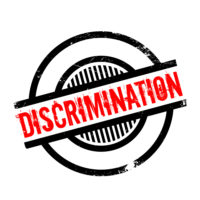Seventh Circuit Holds That Title VII Prohibits Discrimination On The Basis Of Sexual Orientation

Title VII of the Civil Rights Act of 1964 (Title VII) prohibits employers from discriminating against employees on the basis of sex. Since Title VII was passed, federal courts have almost uniformly held that Title VII provides no protection against discrimination on the basis of sexual orientation. In reaching their decision, these courts customarily reasoned that Title VII’s prohibition against discrimination on the basis of sex does not include discrimination on the basis of sexual orientation. To date, the U.S. Supreme Court has not addressed the issue of whether Title VII prohibits discrimination on the basis of sexual orientation. However, in Hively v. Ivy Tech Community College, 853 F.3d 339 (7th Cir. April 4, 2017), the U.S. Seventh Circuit Court of Appeals became the first U.S. federal court of appeals to hold that discrimination on the basis of sexual orientation is a form of sex discrimination prohibited by Title VII.
Kimberly Hively (Hively) began teaching as a part-time adjunct professor at Ivy Tech Community College (Ivy Tech) in 2000. Between 2009 and 2014, Hively applied for at least six full-time positions. Hively was never hired for a full-time position. In fact, Ivy Tech never even interviewed Hively for any of the full-time positions for which she applied. In July 2014, Hively’s part-time contract was not renewed. Hively filed a lawsuit in the U.S. District Court for the Northern District of Indiana claiming that Ivy Tech violated Title VII by denying her promotions and terminating her because of her sexual orientation. The trial court ruled that Title VII does not prohibit discrimination on the basis of sexual orientation and dismissed Hively’s case. Relying on the U.S. Equal Employment Opportunity Commission’s position that Title VII’s prohibition against sex discrimination encompasses discrimination on the basis of sexual orientation, Hively appealed the dismissal of her case to the Seventh Circuit.
At the outset of its opinion, the Seventh Circuit framed the issue before it as whether “actions taken on the basis of sexual orientation are a subset of actions taken on the basis of sex.” In other words, the Seventh Circuit was required to determine whether discrimination on the basis of sexual orientation constitutes discrimination on the basis of sex for purposes of Title VII protection. In resolving this issue, the Hively court noted that prior decisions of the Seventh Circuit squarely held that Title VII provides no protection against sexual orientation discrimination. The Hively court also pointed out that all of the other federal courts of appeals have expressly held that Title VII does not prohibit discrimination on the basis of sexual orientation. However, the Hively court explained, it was necessary to take a “fresh look” at the Seventh Circuit’s position.
In overruling its prior cases on the issue of whether sex discrimination includes discrimination on the basis of sexual orientation, the Hively court found that “it is actually impossible to discriminate on the basis of sexual orientation without discriminating on the basis of sex.” In fact, the Hively court observed, “[i]t would require considerable calisthenics to remove the ‘sex’ from ‘sexual orientation’ ” and “such an effort cannot be reconciled with the straight-forward language of Title VII.” Thus, the Hively court concluded, “discrimination on the basis of sexual orientation is a form of sex discrimination” prohibited by Title VII. Having determined that “a person who alleges that she experienced employment discrimination on the basis of sexual orientation has put forth a case of sex discrimination for Title VII purposes,” the Seventh Circuit reversed the trial court’s decision and reinstated Hively’s lawsuit.
Legal Significance of Seventh Circuit’s Decision
Because the Seventh Circuit held that discrimination on the basis of sexual orientation is a form of sex discrimination prohibited by Title VII, the decision in Hively opens the door to a broad array of claims alleging discrimination on the basis of sexual orientation. The potential sexual orientation based claims Hively may now make available to employees include:
* An employer’s failure to hire an individual on the basis of sexual orientation.
* An employer’s failure to promote an employee on the basis of sexual orientation.
* The harassment of an employee on the basis of sexual orientation.
* An employer’s demotion or termination of an employee on the basis of sexual orientation.
* An employer’s retaliation against an employee for complaining about discrimination or harassment on the basis of sexual orientation.
Unfortunately, the Seventh Circuit’s decision in Hively is not binding on federal or state courts in Florida. Federal courts in Florida are only bound by decisions of the U.S. Supreme Court and the U.S. Eleventh Circuit Court of Appeals. Florida state courts are only bound by the decisions of the U.S. Supreme Court, the Florida Supreme Court, and Florida District Courts of Appeal. Because the Hively decision is not binding in Florida, federal and state courts in Florida are not obligated to follow it. Instead, the decision in Hively only constitutes persuasive authority that Title VII’s prohibition against sex discrimination encompasses discrimination on the basis of sexual orientation. However, Hively is a landmark decision and demonstrates that other courts may soon hold that discrimination on the basis of sexual orientation is a form of sex discrimination prohibited by Title VII.


 Close Menu
Close Menu